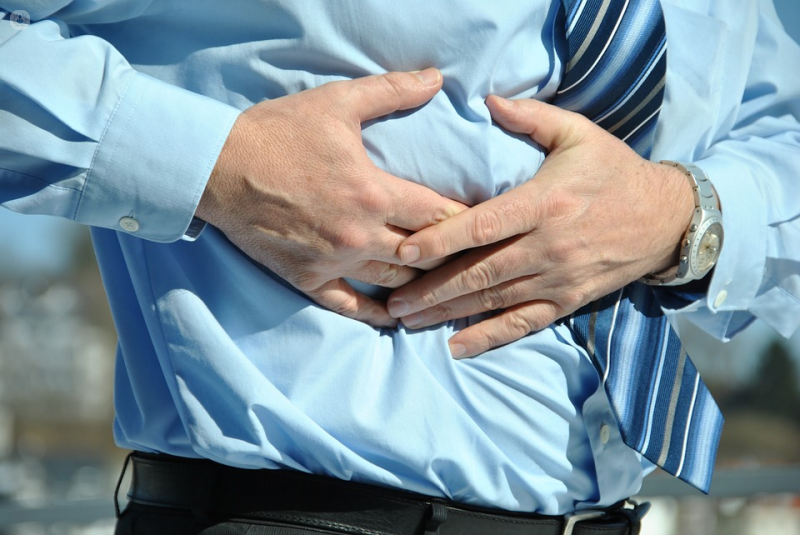Inflammatory Bowel Disease (IBD): everything you need to know about Crohn’s disease and colitis
Written by:There are 250,000 people in the UK diagnosed with ulcerative colitis or Crohn’s disease – referred to as “inflammatory bowel disease” or “IBD”. These diseases are unpleasant and can be debilitating, but, with careful management, can be kept under control in the vast majority of cases, allowing patients to lead normal and happy lives.
Top Doctors talked to Dr Stuart Bloom, a gastroenterologist who specializes in the treatment of Crohn’s disease and colitis, who explained these conditions.

What is the difference between IBD and IBS?
People often get confused between inflammatory bowel disease (IBD) and irritable bowel syndrome (IBS) – only one letter different but very different conditions!
IBS causes pain, bloating, constipation, and diarrhoea – it’s often related to diet and also seems to be affected by gut bacteria.
IBD is something very different because of the underlying inflammation – matters are complicated by the fact that some people with IBD will have IBS as well.
What is inflammatory bowel disease?
Colitis and Crohn’s disease are both inflammatory conditions of the gut.
Crohn’s disease presents with diarrhoea and abdominal pain. It was first described by a New York gastroenterologist called Dr Crohn in the 1930s. It can affect any part of the digestive tract from mouth to anus.
The word “colitis” means “inflamed colon” (“col” from “colon” + “-itis”, describing inflammation). Lots of things can inflame the colon – for instance, infections, some drugs, toxins – even radiation – but the type described as IBD is called ulcerative colitis or UC for short. It tends to present with bloody diarrhoea which goes on for longer than 14 days, although sometimes it can be triggered by an infection or bad attack of food poisoning.
How many people live with inflammatory bowel disease, and who is affected?
Colitis and Crohn’s disease are quite common – there are about 150,000 people with ulcerative colitis and 100,000 people with Crohn’s disease in the UK.
Both ulcerative colitis and Crohn’s tend to affect young people (18-35), which means they often affect people at an economically vulnerable time, such as when they are at school or starting work, or are parents in young families.
What are the causes of Crohn’s disease and colitis?
Although we’ve known about them for 100 years, we still don’t know exactly what causes Crohn’s disease and colitis. They are something of a medical mystery. We are researching the causes and making good progress. Colitis is sometimes triggered by infection, or even certain drugs, but most of the time, we don’t know.
What is the difference between Crohn’s disease and colitis?
They both tend to affect young people – both men and women. Treatment is much the same. The difference is that colitis ONLY affects the colon – patients suffer bleeding and diarrhoea; conversely, Crohn’s affects all of the gut – symptoms can include mouth ulcers, food absorption problems, abdominal pain, and problems with the bottom (perianal Crohn’s disease).
How do you diagnose and treat Crohn’s disease and colitis?
Diagnosis of Crohn’s and colitis begins by taking a history and examining the patients. After this, there are blood tests and endoscopy (a camera examination of the top or bottom end of the digestive tract). To examine the small bowel (intestine), we need to use an imaging test, such as ultrasound, CT scan or MRI. Recent developments include a camera mounted in a “pill” that can be swallowed and pictures taken of the small intestine. Often, biopsies will be taken to confirm the diagnosis with a laboratory.
Treatment for IBD is a combination of anti-inflammatory drugs, for example steroids (which can cause side effects) or more complex drugs to modify the immune system. Newer drugs called biologic drugs are frequently used and there are many drugs in the pipeline. Other treatments may include antibiotics and dietary therapy. Surgery may be required but this can often be “keyhole” surgery and usually results in considerable improvement to quality of life.
When is surgery necessary for IBD?
We try to minimise the use of surgery where possible. Occasionally, colitis can fail to respond to medicines, and surgery is necessary to remove the colon and refashion or “re-plumb” the digestive tract. Surgery involves removing the colon and restoring gut continuity, by making an ileo-anal pouch. In Crohn’s disease, surgery is sometimes needed to remove areas of narrowing in the bowel (stricturing), or to drain abscesses.
Conclusion
In conclusion, although these diseases are unpleasant and impair quality of life, careful and expert management can go a long way to restoring patients to a good level of health.


